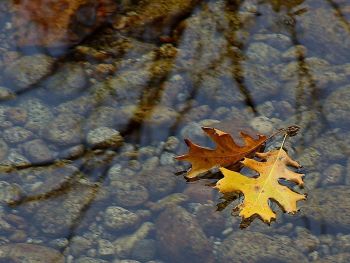
The concept of “choice” can be very stressful. I didn’t choose to be born, I didn’t chose to be human, I didn’t choose my genetic makeup, I didn’t choose my gender, I didn’t choose what I look like, I didn’t choose the color of my skin, etc. The scope of things that we can actually choose is very small, yet we live within the tiny realm of choice thinking ourselves so important because we can make these tiny choices.
These stories we create for ourselves are always ones of assigning credit and placing blame. We strive for the credit and avoid the blame. As kids, if we behave ourselves we will be rewarded, then if we clean our room and get good grades, we will be rewarded, then if we train ourselves well, we get jobs which pay well (pay is our reward), if we are skilled in the game of attraction and pursuit we will gain a beautiful and well-regarded life partner (or partners), then if we are rewarded well enough in life we can retire in comfort. These, of course are all the rewards, however when we are on the receiving end of blame, our lives are not so pleasant we could end up in jail, poor and destitute and generally scorned. Of course that is a rough outline of the stories we create for ourselves, the actual details vary infinitely, but the constant is that they are all stories we create with our own thoughts. These stories bring us a lot of stress and perhaps even psychosis. But they drive us forward seeking with anticipation…. the reward.
Our stories of reward and blame remind me of the Zen story about the farmer and his son. The farmer owns a horse which runs away, all his neighbors tell him that is such bad luck, but he only says “maybe, maybe not” Then the horse returns with 3 wild horses and his neighbors all tell him that is such good luck, he only replies, “maybe, maybe not”. Soon his son is riding one of the wild horses and it throws him and breaks his leg, of course his neighbors are there to console him about his bad luck, but he only replies, “maybe, maybe not”. Next the state militia come through the village and conscript all the young men for war, but his son has a broken leg so he is passed over. His neighbors are of the opinion that this is good luck, but the farmer has no opinion.
If this story were to go on and on indefinitely it would be a good parable for our lives. We are always looking to assign blame or credit, to say something that happens to us is either good or bad. And by extension, trying to make the “good” and avoiding the “bad” choice. We tend to take ourselves so seriously and become so entrenched inside our own stories, that it is hard to see how small our “choices” really are, and how much bigger than us, is the mysterious flow of events.
From From Tao Te Ching Translation by Carl Abbott Chapter 37
The way normally does nothing, yet there is nothing not done.
That is why I find it comforting to imagine myself as a leaf on a stream. The English translation for the Chinese “wu-wei” is “non-action”, one of the most fundamental concepts of Taoism. To our ears this sounds very passive, but from what I understand, a better translation would be “letting events flow naturally”. But the only way we can let events flow naturally is to not place good and bad judgments on the things which happen to us. If we try to approach this idea with our minds we are met with one of those repeating paradoxes, “how can we choose to let go of choice?”
Once again we are presented with the limitations of thought- or should I say the stories we weave in our heads. That is why I just like to imagine myself as a tiny leaf floating down a stream, sometimes getting caught up in small eddies, sometimes moving rapidly in the middle of the current, sometimes bumping into other leaves, clinging and moving together but then being separated by the current again.

No Comments